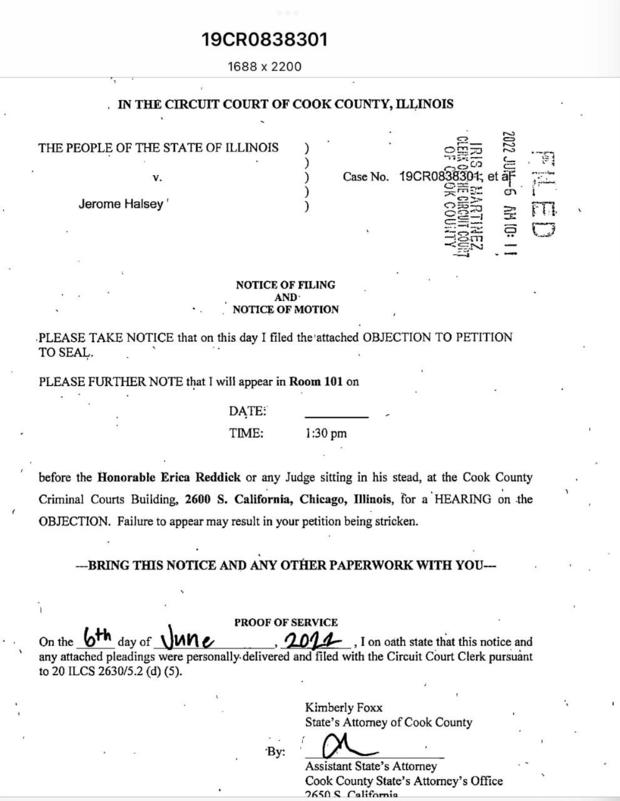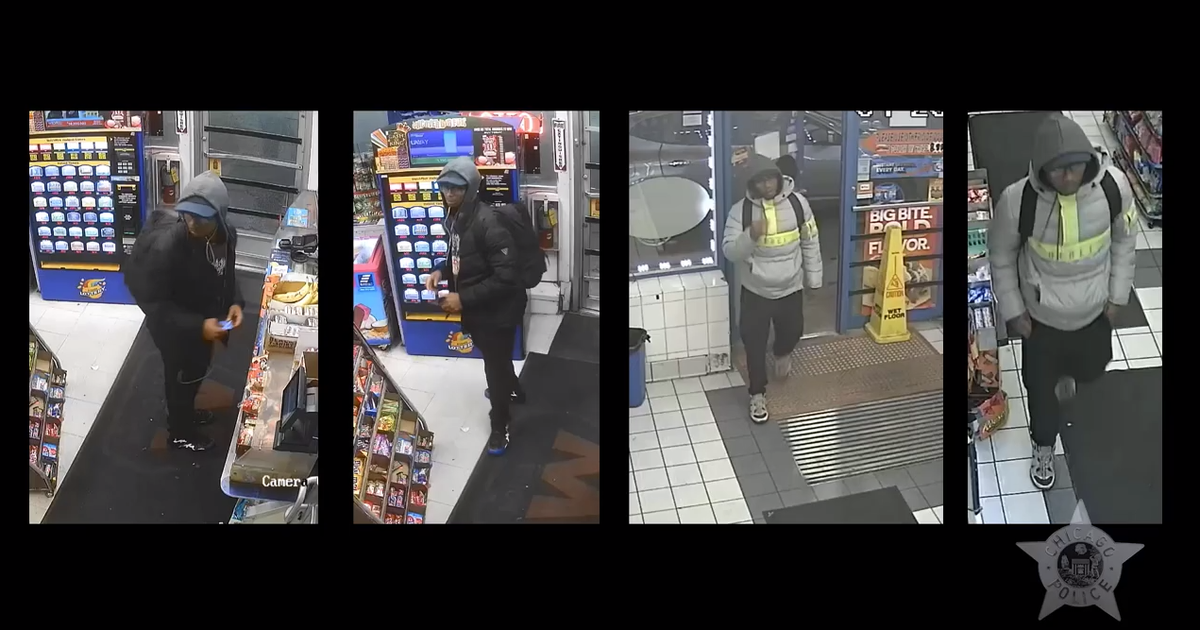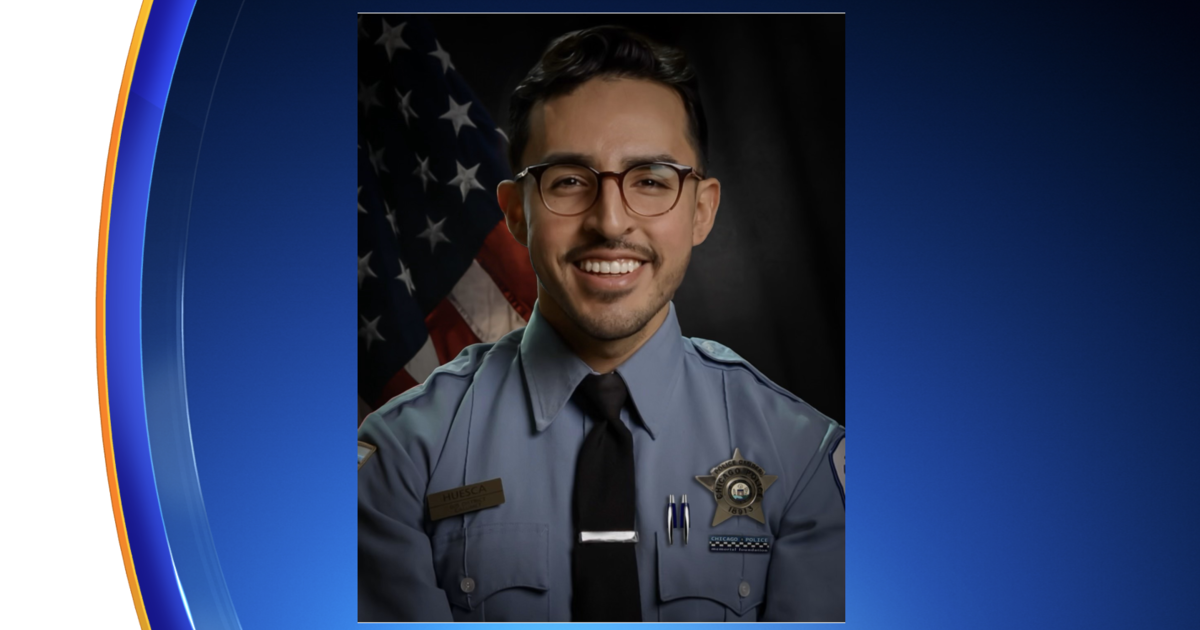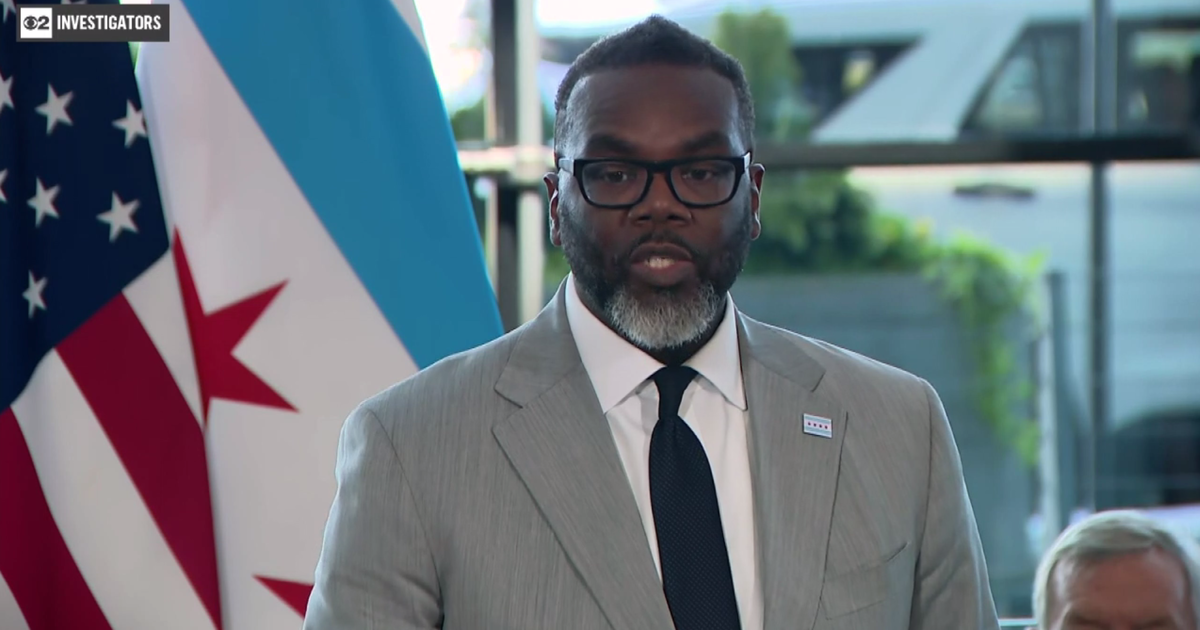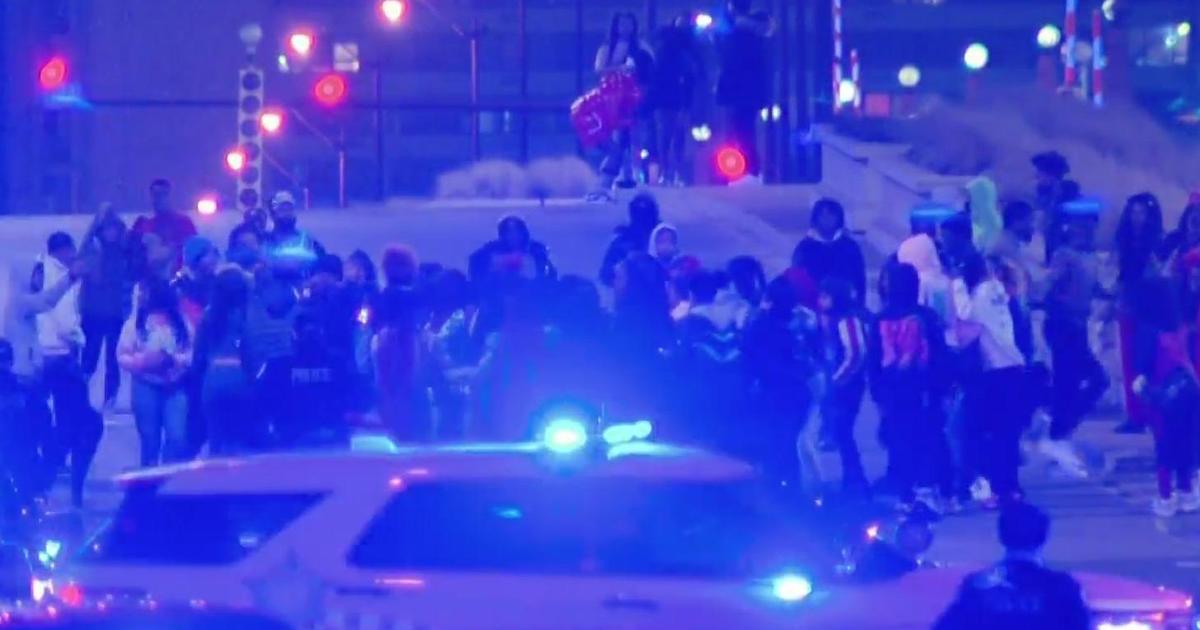How did Jerome Halsey, now charged with shooting a CPD officer, have a FOID and CCL despite gun conviction?
CHICAGO (CBS) -- Jerome Halsey, 27, is charged with shooting and wounding Chicago Police Officer Erik Moreno over the weekend – and he has a gun-related criminal record.
So how did he have a concealed carry license and a Firearm Owners Identification Card at the time of the shooting? Prosecutors weren't sure if Halsey's record had been sealed or expunged.
CBS 2's Tara Molina dug into Halsey's background Wednesday, and whether he would have been legally allowed to have a weapon in the first place.
A prosecutor at Halsey's bond hearing Tuesday said Halsey had a gun case on May 10, 2019, consisting of two counts of unlawful possession of a firearm and got one year of probation. In the charging document filed in Cook County Criminal Court against Halsey on Tuesday, it was not clear what happened after he filed to have that case both sealed and expunged.
But we've learned his record was never actually expunged or sealed - and when it comes to his FOID card, he slipped through a loophole designed by the state.
Halsey stands charged with attempted first-degree murder, aggravated battery, and aggravated assault on accusations that he shot Officer Moreno.
Around 2 p.m. Sunday, police said Officer Moreno pulled a car over in an unmarked police vehicle in the 6900 block of South Sangamon Street in Englewood.
Prosecutors said three uniformed police officers saw Halsey driving erratically, and his brake lights were out. We have learned from police that Officer Moreno was behind the wheel of the unmarked squad car.
Halsey turned into an alley and kept speeding until stopping his car at a dead end, prosecutors said.
Officer Moreno got out of the squad car and walked up to Halsey, prosecutors said. Moreno was feet away from the driver's side door when prosecutors say Halsey "opened the door and fired a gun."
Prosecutors said Halsey shot Moreno in the arm and torso and also fired at the other two uniformed officers. Moreno and another officer fired back and wounded Halsey.
Halsey is hospitalized from the shooting with gunshot wounds to his chest and leg.
Halsey's bond was set at $1 million Tuesday. The proffer produced against Halsey by the Cook County State's Attorney's office read as follows ("D," or defendant, is Halsey):
"D had a prior gun case, 19CR0838301 which occurred on 5/10/19 and he was charged with two counts of Agg UUW No CCL. On 8/29/2019, D pled guilty to an amended charge of Unlawful Use of a Weapon (720 ILCS 5/24-1(A)(4)) Class A misdemeanor and sentenced to 1 year probation. On 3/30/22, D filed for expungement for the gun case. The record is unclear in the Clerks system as to what happened afterwards. However, D had a valid FOID and CCL on the date of incident."
The State's Attorney's office confirmed Wednesday that the expungement has not gone ahead:
"The case has not been expunged. The CCSAO filed an objection to the expungement and a hearing on the expungement is set for July 28th."
This is the document the State's Attorney's office filed blocking Halsey's expungement and seal request.
Thus, there was a gun charge on Halsey's record, and yet, he had a FOID card. The proffer against Halsey also indicated that he did not yet have his Concealed Carry License when he was charged in the gun case back in 2019; he got the license afterward.
It is not clear if this was also the case for Halsey's FOID card.
"The FOID card has certain rules and regulations as to whether or not you can get one or whether it could be revoked," said CBS 2 Legal Analyst Irv Miller, "and frankly, he slipped into a crack in the system."
Miller explained since Halsey pled down to a misdemeanor gun charge back in 2019, "he was able to get the FOID card, and maintain that FOID card, based upon the charges that were faced back on that earlier gun charge."
Convicted felons can't get FOID cards. Neither can anyone convicted of battery, assault, aggravated assault, or violation of an order of protection in the past five years.
But the only misdemeanor charge that impacts the application and status of a FOID card is related to domestic violence. So state law allowed for Halsey to keep his.
"I would call it a loophole, but it was a loophole clearly designed by the General Assembly in posing this statute," Miller said.
The fact that Halsey had a FOID card under such circumstances was also not a surprise, Miller said.
"The fact that a person with an FOID card did these crimes doesn't surprise me at all. It happens every day," Miller said. "I was a former prosecutor, defense attorney. I've seen all of this."
Halsey remained hospitalized from police gunshot wounds as of Wednesday. It is not clear right now who is representing him in this case.
Miller said if convicted, Halsey faces a steep prison term.
"The minimum sentence he can get, if he's convicted of this, is 45 years in the penitentiary to natural life," he said.
Besides noting that misdemeanors are not a "prohibitor" for a CCL or FOID card unless domestic violence is involved, state police would only say, "The Illinois State Police does not disclose an individual's FOID or CCL status."
As for Officer Moreno, he had been expected to be released from the University of Chicago Medical Center on Tuesday, but the date was moved to Wednesday after it was determined that more tests were needed. His release date has now been moved again – doctors are keeping him in the hospital for a couple more days.
